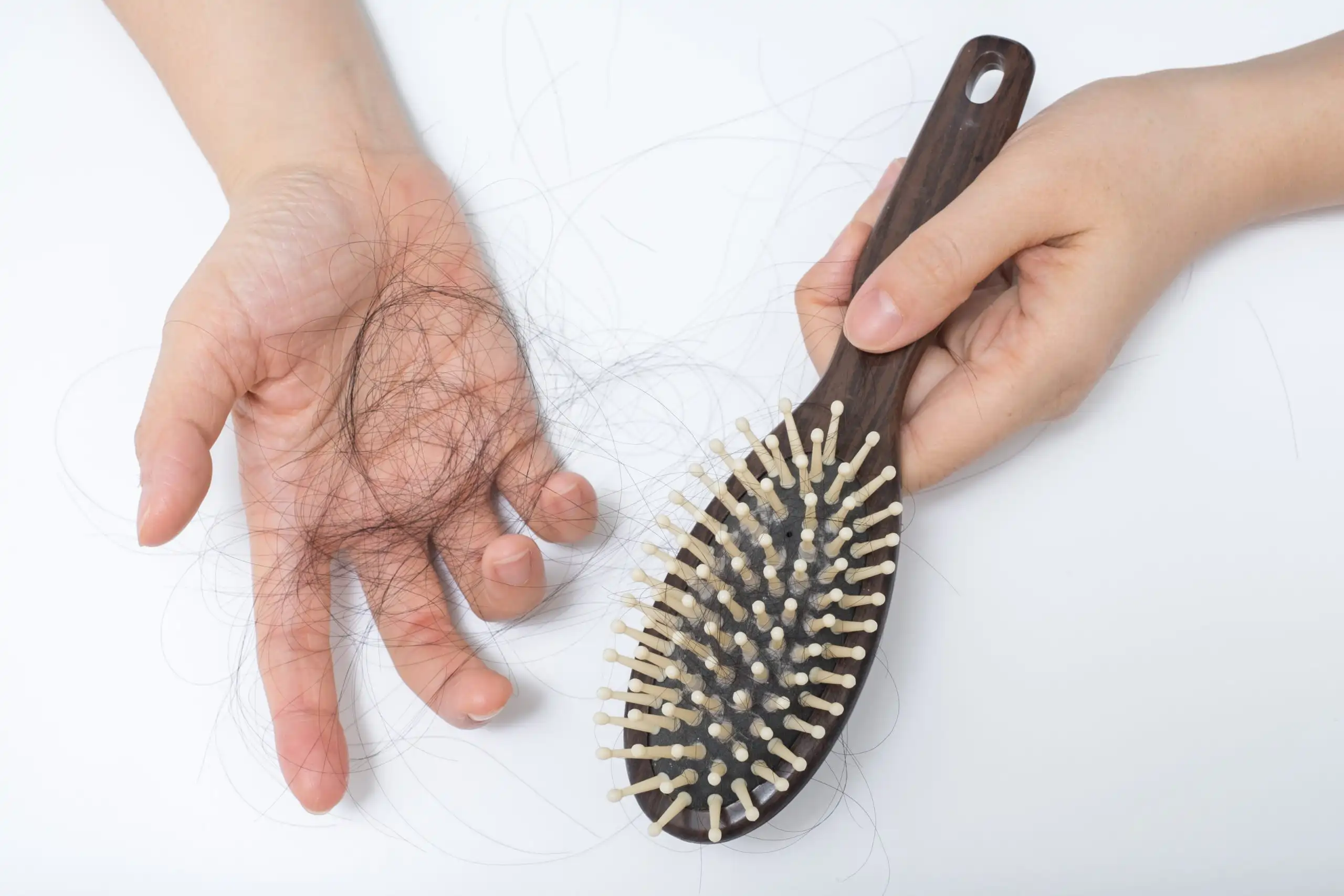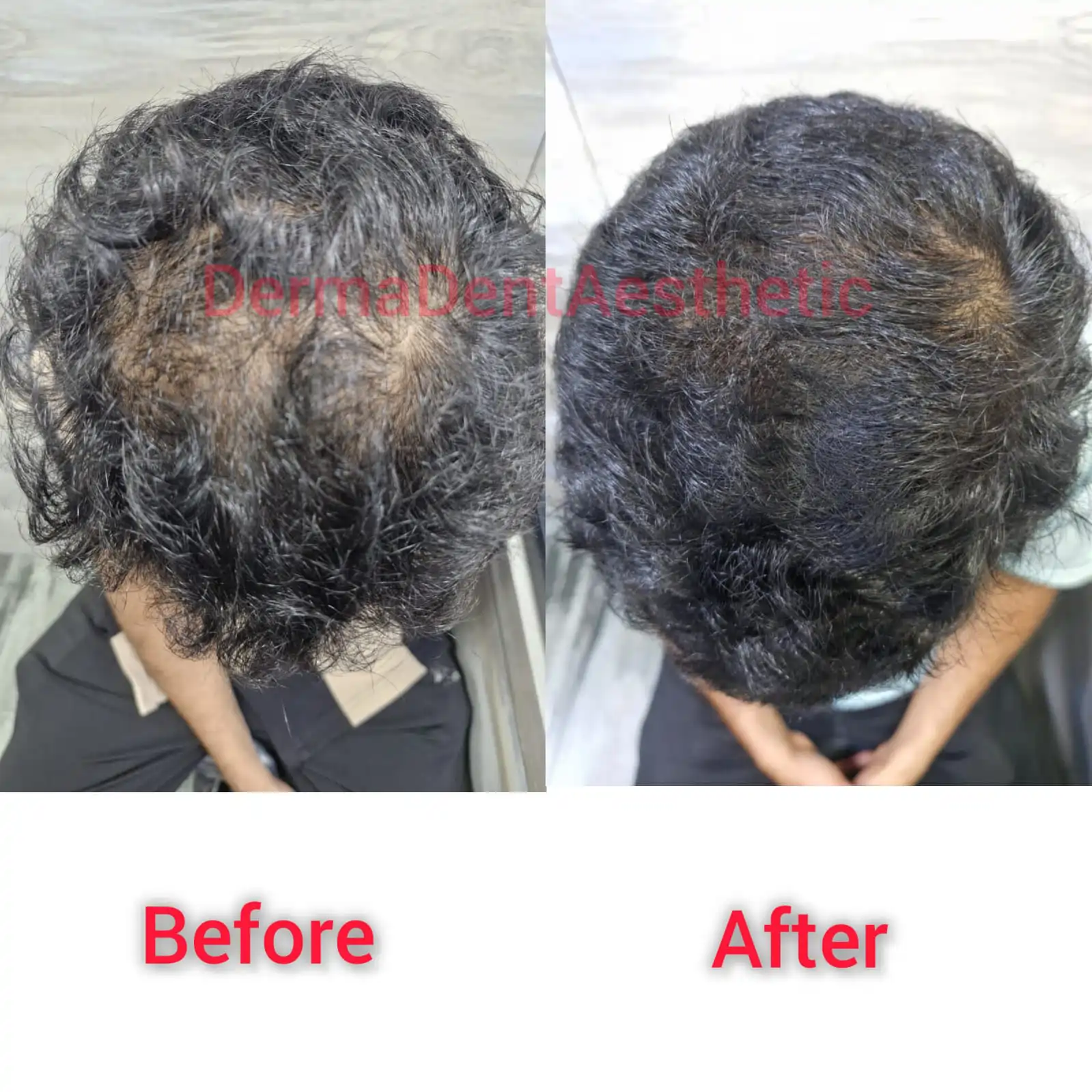Hair Fall

Hair Fall
Understanding Hair Fall
Hair fall (also called hair loss or alopecia) is a condition where a person loses more hair than normal. Losing 50–100 hairs daily is natural, but excessive shedding or visible thinning can signal an underlying issue.
What's Included
Common Causes of Hair Fall
- Genetics Most common cause (Androgenetic Alopecia). Runs in families with patterned hair loss.
- Nutritional Deficiencies Low levels of iron, vitamin D, B12, zinc, or protein.
- Hormonal Changes Due to PCOS, thyroid, menopause, or postpartum phase.
- Stress/Illness Hair shedding after stress, surgery, or major illness (Telogen Effluvium).
- Scalp Conditions Dandruff, psoriasis, or fungal infections weakening the roots.
- Medications Blood thinners, chemotherapy, antidepressants, etc.
- Hairstyling Damage Frequent heat, tight hairstyles, and chemical treatments.
Treatment Options:
- Topical Minoxidil Stimulates hair growth by improving blood flow.
- Nutritional Supplements Corrects deficiencies (iron, biotin, vitamin D, etc.).
- PRP Therapy Uses growth factors from your own blood.
- Microneedling + Serums Boosts regeneration and absorption of nutrients.Microneedling + Serums Boosts regeneration and absorption of nutrients.
- Oral Medications Used for PCOS or patterned hair loss (e.g., anti-androgens).
- Hair Transplant For permanent hair loss in advanced cases.
🧪 Diagnosis by Dermatologist
- Hair & scalp examination
- Hair pull test
- Trichoscopy (microscopic view)
- Blood tests (Iron, Vitamin D, Thyroid, Hormones)
- Scalp biopsy (in rare or unclear cases)
Hair Care Tips
- Use a mild, pH-balanced shampoo
- Include protein-rich foods in your diet
- Avoid tight hairstyles and heat styling
- Massage scalp gently to improve circulation
- Manage stress with yoga, meditation, or therapy
When to See a Dermatologist
- Sudden, patchy, or severe hair fall
- Bald spots or scalp visibility
- Itching, redness, or dandruff
- Family history of baldness
- No improvement with over-the-counter products
Disclaimer: Do not self-prescribe or start any medication or topical treatment without consulting a qualified doctor. Improper use can lead to side effects, resistance, or complications. Always follow professional medical advice.

